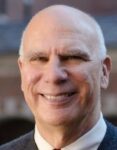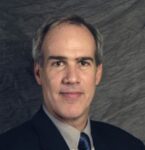Plenary Speakers
Charles P. Friedman, PhD
 Josiah Macy Jr. Professor of Medical Education
Josiah Macy Jr. Professor of Medical Education
Chair, Department of Learning Health Sciences, Medical School
Professor of Information and Public Health
University of Michigan
Revisiting Medical Education in the Era of Ubiquitous Information
In 2011, I was privileged to give the RIME 50th Anniversary talk at the AAMC Annual Meeting. I argued that the practice of medicine would increasingly benefit from immersion in a “cloud” of validated and readily accessible biomedical knowledge; and outlined the ways medical education should change in anticipation of this major change in the practice environment. It’s now 12 years later and perhaps it’s time to examine what changes have occurred. To what extent has the knowledge cloud developed and has it yielded any of the anticipated benefits? I also hope we can discuss whether medical education has changed in anticipation.
Bio: Charles Friedman is the Josiah Macy Jr. Professor of Medical Education and Chair of the Department of Learning Health Sciences at the University of Michigan Medical School. In recent years, he has focused his academic interests and activities on the concept of Learning Health Systems that improve health by marrying discovery to implementation, and the socio-technical infrastructure required to sustain these systems. He is editor-in-chief of the open-access journal Learning Health Systems and co-chair of the movement to Mobilize Computable Biomedical Knowledge. He was recently awarded an honorary doctorate by the University of Lucerne in Switzerland for his contributions to the science of Learning Health Systems. Prior to coming to Michigan, Friedman held executive positions at the Office of the National Coordinator for Health IT (ONC) in the U.S. Department of Health and Human Services. Immediately prior to his work in the government, Dr. Friedman was Associate Vice Chancellor for Biomedical Informatics, and Founding Director of the Center for Biomedical Informatics at the University of Pittsburgh. In his earlier career, he was Director of the Office of Educational Development at the University of North Carolina in Chapel Hill.
Stuart Slavin MD, MEd
 Senior Scholar for Well-being
Senior Scholar for Well-being
Accreditation Council for Graduate Medical Education (ACGME)
Reimagining Well-Being Initiatives in Undergraduate Medical Education
In this presentation, Dr. Slavin will provide an overview of the current state of mental health of medical students and common approaches being used to enhance their well-being. He will then review initiatives, both environmental and individually focused, that he oversaw that produced dramatic decreases in depression and anxiety in pre–clerkship students at one medical school. Finally, Dr. Slavin will describe a vision for change to build healthier learning environments that can lead to meaningful and sustainable improvements in student mental health and well-being.
Bio: Stuart Slavin MD, MEd, is Senior Scholar for Well-being at the Accreditation Council for Graduate Medical Education (ACGME). A graduate of Saint Louis University School of Medicine, Dr. Slavin completed his residency training in pediatrics at UCLA and then served as a faculty member there for 17 years before returning to Saint Louis University as Associate Dean for Curriculum. While at SLU, Dr. Slavin led efforts to improve the mental health of medical students that produced dramatic decreases in rates of depression and anxiety in pre-clerkship students. He joined the ACGME in 2018 and is helping to lead efforts to improve the mental health of residents and faculty across the US.
Karen Hauer, MD, PhD
 Associate Dean, Competency Assessment and Professional Standards
Associate Dean, Competency Assessment and Professional Standards
Interim Vice Dean, Education
Professor of Medicine
University of California, San Francisco
The Future of Medical Student Clinical Skills Assessment: Innovate or Retreat?
The year 2023 constitutes a pivotal time for clinical skills assessment in medical schools. Clinical skills assessment is essential to ensure students’ achievement of competencies necessary to begin graduate medical education training. The USMLE Step 2 CS licensing examination served as a powerful motivator for schools to add and augment clinical skills assessments with standardized patients. The discontinuation of this national licensing exam creates opportunities for schools to innovate their approach to clinical skills teaching and assessment; however, with the resources needed for clinical skills assessments and many competing priorities, the discontinuation of this exam also threatens the commitment to assurance of clinical skills competence. This presentation will discuss medical schools’ response to the discontinuation of the national licensing exam and opportunities to innovate to improve clinical skills learning and assessment to enhance the undergraduate to graduate medical education transition.
Bio: Karen Hauer is Associate Dean for Competency Assessment and Professional Standards, co-Interim Vice Dean for Education, and Professor of Medicine at the University of California, San Francisco (UCSF). She designs and leads the program of assessment in the UCSF School of Medicine Bridges curriculum and directs the School’s medical student coaching program. She is an active researcher in medical education and a research mentor for fellows, residents and students, with a focus on competency-based medical education, equity and anti-oppression, learner assessment, coaching and remediation. In 2015, she completed a PhD in Medical Education through a joint program with UCSF and the University of Utrecht in the Netherlands. She has served in leadership and service roles with the Josiah Macy Jr. Foundation, the AAMC, and the National Board of Medical Examiners, and is past president of the Clerkship Directors in Internal Medicine national organization. Clinically, she is a general internist at UCSF Health.